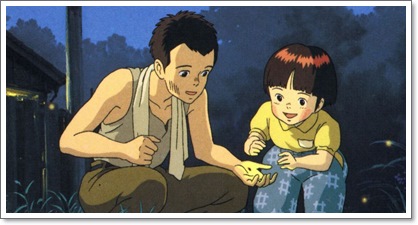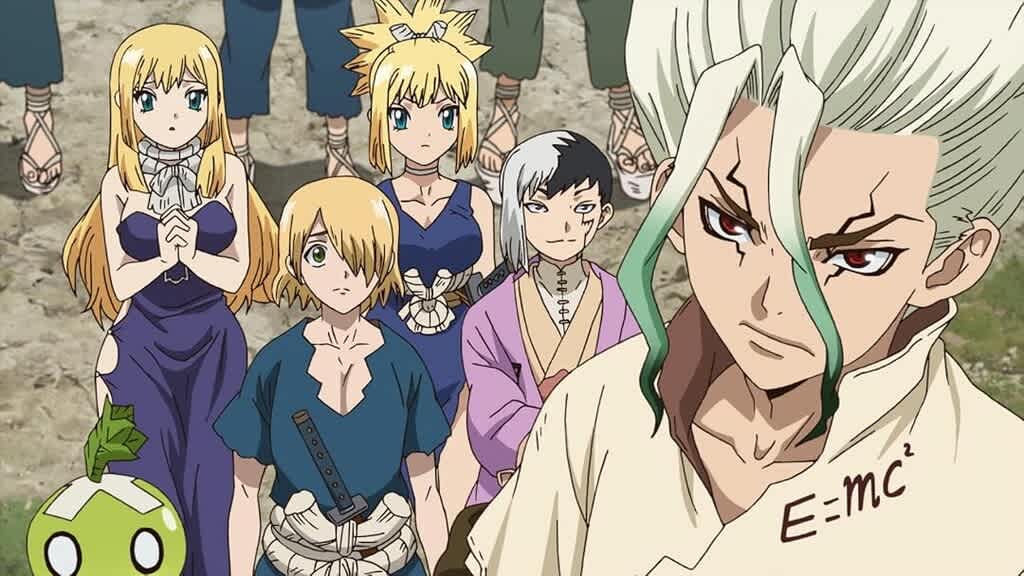
新エブリワンブログはこちら。
引っ越しを完了しておりますので、ぜひブックマークをお願いいたします。
上下ともクリックしていただけると大変うれしいです。
ロンドンの大学のロースクールで勉強しているうちの娘が、去年に続いてこの夏休みにうちに合宿して、東京の法律事務所や企業にインターンシップに通っているのですが。
前に書いたように夕食の時に彼女が言っていたのが、日本のリベラル・左派は新たな「Yes we can」的な「ナラティブ」を創作しないといけないという話でした。
ナラティブ(物語)とはただのお話や筋書きであるストーリーではなくて、自分が主体的にかかわる物語。
語り手視点の物語を重視し、「話の内容」だけでなく「誰が、どのように語るか」というアプローチや視点・解釈も含みます。
一人ひとりや主体自身が経験を基に自由に紡ぐ物語、つまり主観的で個別性の強い「語り」がナラティブです。
悪い例で言うと、参政党の神谷宗幣代表がいい大人なのに恥ずかしげもなく信者。。。。もとい支持者たちに語ったという
『(参政党員は)鬼殺隊ですよ。日本人の心の中にいる鬼をみんなで浄化する!』
『僕たちが鬼殺隊をやっていたら、いつか煉獄さんみたいな人が生まれる』
という、例の中坊丸出しのアレです(笑)。

カルト参政党の神谷宗幣代表が「日本のプロゲーマー集めてドローン部隊作って」「参政党員は鬼殺隊ですよ。日本人の心の中にいる鬼をみんなで浄化する!」。日本人はいつまでこのトンデモ幼児政党に付き合うのか。
さてロンドンで今日試験があり、娘はいったん帰って勉強していたのですが、その試験勉強の最中に送ってきたのが試験の課題で書いた以下のメモです。
⸻ ジョージ・モンビオ ― 「この混乱からどう抜け出すか?」の主張 ⸻
■ 危機
モンビオは、現代政治における絶望感から話を始める。気候崩壊、
■ 核心的な主張
「政治的変化は事実ではなく物語によって起こる。」
1. 物語の力(Narrative Power)
• 人間は物語を語る生き物である。私たちの価値観や政治行動は、
• 近代史で最も影響力のあった政治的物語 ― ケインズ主義と新自由主義 ― はどちらも同じ構造を持っていた。
「復興の物語(
2. 左派の失敗(Failure of the Left)
• 左派の失敗は戦略面だけでなく、想像力の欠如でもある。
• 環境コストを考えると、
3. 必要なのは「帰属の政治」(The Politics of Belonging)

カテゴリ 絶対ハズレなし!超お勧め映画!! (6)より
チャップリンの「独裁者」より、史上最高の演説。「いずれ憎しみは消え去り、独裁者たちは死に絶える」。
モンビオは新しい復興の物語を提案する。
それは次のようなもの:
• 科学(進化生物学、心理学など)に基づき、人間の利他性・協力・
• コミュニティ再建と参加型民主主義を進め、権力を分散させ、「
• 持続可能性・共有・
• サンダースやモメンタムなどの例に見られるように、
(以上、引用終わり)


幼い娘を毎晩お姫様抱っこして寝床に連れていき、カリオストロの城の続編を即興でこしらえて話しては寝物語にしていました。
その娘から物語の力について語られるようになるとは、なんと幸せなこと!
ルパン3世 カリオストロの城 キャラクター占い
ジョージ・モンビオ(George Monbiot)は、イギリスの著名な作家・コラムニスト・環境活動家です。
特に『The Guardian(ガーディアン)』紙などでの政治・環境に関する鋭いコラムで知られています。またTEDなどでの講演も多く、社会変革や新しい物語の必要性について語っています。
ガーディアンでのコラムはこちらになります。
George Monbiot: how do we get out of this mess?
はてなの新エブリワンブログには元の英文全部と冒頭部分の機械翻訳の日本語を載せておきました。
なにしろ、こちらの旧goo版は字数制限があるのですが、あちらのはてな版のいいところは表題も本文も字数制限がないところで。
ただでさえ長いうちの記事なので、この秋、gooのサービスが終わってはてなだけに一本化したら、むしろ短くすることを常に意識しないといけないくらいなんです(笑)。

「火垂るの墓」 高畑勲監督「為政者が次の戦争を始める時には必ず・・・」
とにかくうちの娘に言わせると、
という鋭いような余計なようなことも書いてきていましたが(笑)、私もれいわ新選組には「極右カルト政党」の参政党と「政界吹き溜まり」の日本維新の会へのカウンター政党として力を発揮してほしいと思ってます。



絶対ハズレなし 超お勧め映画! 火垂るの墓 「4歳と14歳で生きようと思った・・・」
さて実はですね、わたくし、リベラル・左派にとって大事な言葉は
「友愛」
だと思っているのですが、これがお坊ちゃん政治家代表から今やすっかり陰謀論政治家代表格になってしまった鳩山由紀夫元首相に先に使われていて非常に悔しいんですw
宮崎駿監督の「風の谷のナウシカ」の最後の場面、目の見えない大ババ様がオウムたちとナウシカの作り出した世界を感じて、
「奇跡じゃ、奇跡じゃ!なんといういたわりと友愛じゃ。王蟲が心を開いておる。子どもたちよ、わしの盲いた目の代わりによく見ておくれ」
と子どもたちに言うでしょう?
あれです。




これから間違いなく、日本は人口が急速に減り、経済規模は縮小し、誰にとっても苦しい時代がやってきます。
しかもそれは先細りが永遠であるかのように続く長くつらい日々です。
そういうとき、「日本人ファースト」と言って日本人と外国人を、「現役世代から豊かになろう」と言って若い世代と高齢者層を、日本に暮らす市民同士を分断して争わせるポピュリズム政党が人気を博する場面が必ずあるわけですよ。
そうしたときに、人間と蟲たちの間でさえ心の交流と信頼を持てたような、他者同士がお互いを理解し合う、尊重し合うことがとても大事になってくると思うんです。

魔王を倒す勇者たちのパーティの旅が終わったあとを描く、登場人物一人一人の背景が丁寧に描かれた小学館らしい繊細なアニメ「葬送のフリーレン」。
第2シーズンが待ち遠しくて仕方ない。

ある日突然人類全体が「石化」して数千年後。
石化が解けた高校生の「Dr.STONE」たちが科学の力だけを信じて人類全体を蘇らせる壮大な冒険に挑むという、展開のスケールのでかさに口があんぐり開く手塚治虫の正統な後継者アニメ。
高畑勲さんと宮崎駿さんのジブリアニメが大人気で、「友情 努力 勝利」の少年ジャンプも大人気で、どんなアニメもマンガもドラマも映画も結局は人と人との友愛を描いている日本。
「ドラゴンボール」だって「ワンピース」だって「SPYファミリー」だって、あの参政党が推す「鬼滅の刃」だって、ジャンプの人気作は全部友愛そのもののお話ばかりじゃないですか。
チャンピオン原作の「BEASTARS」もサンデー原作の「葬送のフリーレン」も人気アニメはみんなそうです。
誰もが本当はいたわり合い、慈しみ合う世界を望んでいる。
その思いを汲み取って事態を切り開けるのは、右翼でもない、陰謀論でもない、自由と平等と人権を大事にしているリベラル・左派だけだと思います。



「週刊チャンピオン」(秋田書店)連載作品なのに講談社漫画賞を受賞。
その後、第11回マンガ大賞で大賞を受賞し、秋田書店の漫画作品で大賞を受賞した初めての作品となった歴史的な名作マンガ「BEASTARS」
編集後記
コロナ禍で出会ったアニメの中でも最高傑作のひとつ「BEASTARS」。
肉食獣と草食獣が生活・共存をする世界を舞台に、全寮制の学校「チェリートン学園」へ通う高校生たちを描く。
YOASOBIの「優しい彗星」とこの動画を見て何度泣いたことか。
誰の心中にもそういう感性がきっと息づいているはず。
ジョージ・モンビオット:この混乱からどう抜け出すのか?
この記事は7年以上前に書かれたものです。
ドナルド・トランプ。北朝鮮。ハリケーン。新自由主義。より良い世界への希望はあるのでしょうか?確かに。しかし、私たちは団結して、私たちが何者で、どう生きるべきかを説明する、より優しく新しい物語を語らなければなりません。
ジョージ・モンビオット
2017年9月9日(土) 午前6時00分 (英国夏時間)
シェア
1,086
より良い世界を願うことは、果たして合理的なのでしょうか?政府の冷酷さと無関心、野党の混乱、気候変動への避けられない傾斜、新たな核戦争の脅威を研究すれば、答えは「ノー」に思えます。私たちの問題は解決不可能に見え、指導者たちは危険で、有権者は怯え、困惑しています。絶望だけが唯一の合理的な対応のように思えます。しかし、この2年間で、私は4つのことに心を打たれました。これらの考察が明らかにしているのは、政治の失敗とは本質的に想像力の欠如であるということです。これらの考察は、希望ではなく絶望こそが非合理的であることを示唆しています。そして、これらの考察はより良い世界への道を照らすものだと信じています。
最初の考察は、最も独創性に欠けるものです。それは、政治を支配するのは強力な指導者や政党ではなく、むしろ強力な政治的ナラティブであるという認識です。20世紀後半の政治史は、ケインズ主義的社会民主主義と新自由主義が語る物語という、二つの大きなナラティブの対立として要約することができます。最初はどちらかが、そして次にもう一方こそが、政治的スペクトラム全体にわたって人々の心を捉えました。社会民主主義の物語が支配的だった時代は、保守党や共和党でさえもその綱領の主要要素を採用しました。新自由主義がそれに取って代わると、政党の色合いに関わらず、あらゆる政党がその魔法にかかってしまいました。これらの物語は、人格、アイデンティティ、そして政党の歴史など、あらゆるものを覆しました。
これは驚くべきことではありません。物語は、私たちが世界を航海するための手段です。物語は、複雑で矛盾したシグナルを解釈することを可能にしてくれます。私たちは皆、物語を聴く本能を持っています。それは、自分が何者で、どこに立っているのかを語りかける、生まれながらの性質です。
「より良い世界を望むのは理にかなっているだろうか?」
画像を全画面で表示
「より良い世界を望むのは理にかなっているだろうか?」 イラスト:マイケル・カーカム
複雑な問題に遭遇し、それを理解しようとする時、私たちが求めるのは、一貫性があり信頼できる事実ではなく、一貫性があり理解しやすい物語です。何かが「意味を成す」かどうか自問自答するとき、私たちが求める「意味」は、科学者や哲学者が考える合理性ではなく、物語の忠実性です。私たちが耳にしているものは、人間や世界がどう振る舞うべきかという私たちの期待を反映しているでしょうか?それは一貫性があるでしょうか?物語が進むべき道筋に沿って展開しているでしょうか?
どんなによく裏付けられた事実の羅列であっても、強力な物語を正したり、覆したりすることはできません。それが引き起こす可能性のある唯一の反応は、憤慨です。人々はしばしば、自分たちの心に定着した物語の「真実」と衝突する事実を、怒りをもって否定します。物語を置き換えることができるのは、物語そのものである。物語を語る者が世界を動かすのだ。
作家であり組織者でもあるジョージ・マーシャルの助言を得て、私は二つ目の、より興味深い考察に至った。それは次の点だ。社会民主主義と新自由主義が語る物語は、互いに明確に対立しているにもかかわらず、同じ物語構造を持っている。これを「復興物語」と呼ぶこともできるだろう。それはこうだ。
人類の利益に反抗する強大で邪悪な勢力によって引き起こされた混乱が、この土地を蝕む。主人公――一人の人物、あるいは集団――は、この混乱に反抗し、邪悪な勢力と戦い、大きな困難を乗り越えてそれらを克服し、秩序を取り戻す。
『ライオンと魔女』:「ナルニアの場合、私たちは世俗の権力に対する神の権利の勝利を歓喜している。」
画像を全画面で表示
『ライオンと魔女』:「ナルニアの場合、私たちは世俗の権力に対する神の権利の勝利を歓喜している。」 写真:Alamy
このパターンに従う物語は、非常に強力であり、すべてを、私たちの根本的な価値観さえも、その前に押し流すことがあります。例えば、世界で最も愛され、最も不朽の名作である『指輪物語』と『ナルニア国物語』シリーズは、中世にはよく知られていたものの、今日では一般的に忌まわしいとされる価値観を呼び起こします。これらの物語における無秩序は、正当な王またはその正当な後継者の簒奪によって特徴づけられ、正義と秩序はそれらの回復にかかっています。私たちは、専制政治の復活、産業の破壊、そしてナルニアの場合のように、世俗の権力に対する神の権利の勝利を歓喜しているのです。
もしこれらの物語が、民主主義、独立、産業「進歩」といった、大多数の人々が唱える価値観を反映していたとしたら、反逆者たちは英雄であり、世襲統治者たちは悪役だっただろう。私たちは、これらの物語が、私たちの心が備えている物語構造とあまりにも強く共鳴するため、自らの優先順位との衝突を見過ごしてしまう。事実、証拠、価値観、信念。物語はすべてを征服する。
(以下略)
George Monbiot: how do we get out of this mess?
Donald Trump. North Korea. Hurricanes. Neoliberalism. Is there any hope of a better world? Yes, but we have to come together to tell a new, kinder story explaining who we are, and how we should live
Is it reasonable to hope for a better world? Study the cruelty and indifference of governments, the disarray of opposition parties, the apparently inexorable slide towards climate breakdown, the renewed threat of nuclear war, and the answer appears to be no. Our problems look intractable, our leaders dangerous, while voters are cowed and baffled. Despair looks like the only rational response. But over the past two years, I have been struck by four observations. What they reveal is that political failure is, in essence, a failure of imagination. They suggest to me that it is despair, not hope, that is irrational. I believe they light a path towards a better world.
This should not surprise us. Stories are the means by which we navigate the world. They allow us to interpret its complex and contradictory signals. We all possess a narrative instinct: an innate disposition to listen for an account of who we are and where we stand.

A string of facts, however well attested, will not correct or dislodge a powerful story. The only response it is likely to provoke is indignation: people often angrily deny facts that clash with the narrative “truth” established in their minds. The only thing that can displace a story is a story. Those who tell the stories run the world.
I came to the second, more interesting, observation with the help of the writer and organiser George Marshall. It is this. Although the stories told by social democracy and neoliberalism are starkly opposed to each other, they have the same narrative structure. We could call it the Restoration Story. It goes like this:
Disorder afflicts the land, caused by powerful and nefarious forces working against the interests of humanity. The hero – who might be one person or a group of people – revolts against this disorder, fights the nefarious forces, overcomes them despite great odds and restores order.

If these stories reflected the values most people profess – democracy, independence, industrial “progress” – the rebels would be the heroes and the hereditary rulers the villains. We overlook the conflict with our own priorities because the stories resonate so powerfully with the narrative structure for which our minds are prepared. Facts, evidence, values, beliefs: stories conquer all.
The social democratic story explains that the world fell into disorder – characterised by the Great Depression – because of the self-seeking behaviour of an unrestrained elite. The elite’s capture of both the world’s wealth and the political system resulted in the impoverishment and insecurity of working people. By uniting to defend their common interests, the world’s people could throw down the power of this elite, strip it of its ill-gotten gains and pool the resulting wealth for the good of all. Order and security would be restored in the form of a protective, paternalistic state, investing in public projects for the public good, generating the wealth that would guarantee a prosperous future for everyone. The ordinary people of the land – the heroes of the story – would triumph over those who had oppressed them.
The neoliberal story explains that the world fell into disorder as a result of the collectivising tendencies of the overmighty state, exemplified by the monstrosities of Stalinism and nazism, but evident in all forms of state planning and all attempts to engineer social outcomes. Collectivism crushes freedom, individualism and opportunity. Heroic entrepreneurs, mobilising the redeeming power of the market, would fight this enforced conformity, freeing society from the enslavement of the state. Order would be restored in the form of free markets, delivering wealth and opportunity, guaranteeing a prosperous future for everyone. The ordinary people of the land, released by the heroes of the story (the freedom-seeking entrepreneurs) would triumph over those who had oppressed them.

You cannot take away someone’s story without giving them a new one. It is not enough to challenge an old narrative, however outdated and discredited it may be. Change happens only when you replace one story with another. When we develop the right story, and learn how to tell it, it will infect the minds of people across the political spectrum.
But the best on offer from major political parties is a microwaved version of the remnants of Keynesian social democracy. There are several problems with this approach. The first is that this old story has lost most of its content and narrative force. What we now call Keynesianism has been reduced to two thin chapters: lowering interest rates when economies are sluggish and using countercyclical public spending (injecting public money into the economy when unemployment is high or recession threatens). Other measures, such as raising taxes when an economy grows quickly, to dampen the boom-bust cycle; the fixed exchange rate system; capital controls and a self-balancing global banking system (an international clearing union) – all of which John Maynard Keynes saw as essential complements to these policies – have been discarded and forgotten.
This is partly because the troubles that beset the Keynesian model in the 1970s have not disappeared. While the oil embargo in 1973 was the immediate trigger for the lethal combination of high inflation and high unemployment (“stagflation”) that Keynesian policies were almost powerless to counteract, problems with the system had been mounting for years. Falling productivity and rising cost-push inflation (wages and prices pursuing each other upwards) were already beginning to erode support for Keynesian economics. Most importantly, perhaps, the programme had buckled in response to the political demands of capital.
But perhaps the biggest problem residual Keynesianism confronts is that, when it does work, it collides headfirst with the environmental crisis. A programme that seeks to sustain employment through constant economic growth, driven by consumer demand, seems destined to exacerbate our greatest predicament.

Without a new, guiding story of their own, allowing them to look to a better future rather than a better past, it was inevitable that parties who once sought to resist the power of the wealthy elite would lose their sense of direction. Political renewal depends on a new political story. Without a new story that is positive and propositional, rather than reactive and oppositional, nothing changes. With such a story, everything changes.
This might sound like a tall order. But there is, I believe, a clear and compelling Restoration Story to be told that fits this description.
Over the past few years, there has been a convergence of findings in different sciences: psychology, anthropology, neuroscience and evolutionary biology. Research in all these fields points to the same conclusion: that human beings are, in the words of an article in the journal Frontiers in Psychology, “spectacularly unusual when compared to other animals”. This refers to our astonishing degree of altruism. We possess an unparalleled sensitivity to the needs of others, a unique level of concern about their welfare, and a peerless ability to create moral norms that generalise and enforce these tendencies.
We are also, among mammals, the supreme cooperators. We survived the rigours of the African savannahs, despite being weaker and slower than our predators and most of our prey, through developing a remarkable capacity for mutual aid. This urge to cooperate has been hard-wired into our brains through natural selection. Our tendencies towards altruism and cooperation are the central, crucial facts about humankind. But something has gone horribly wrong.
Our good nature has been thwarted by several forces, but perhaps the most powerful is the dominant political narrative of our times. We have been induced by politicians, economists and journalists to accept a vicious ideology of extreme competition and individualism that pits us against each other, encourages us to fear and mistrust each other and weakens the social bonds that make our lives worth living. The story of our competitive, self-maximising nature has been told so often and with such persuasive power that we have accepted it as an account of who we really are. It has changed our perception of ourselves. Our perceptions, in turn, change the way we behave.
But by coming together to revive community life we, the heroes of this story, can break the vicious circle. Through invoking our capacity for togetherness and belonging, we can rediscover the central facts of our humanity: our altruism and mutual aid. By reviving community, built around the places in which we live, and by anchoring ourselves, our politics and parts of our economy in the life of this community, we can restore the best aspects of our nature.
Where there is atomisation, we will create a thriving civic life. Where there is alienation, we will forge a new sense of belonging: to neighbours, neighbourhood and society. Community projects will proliferate into a vibrant participatory culture. New social enterprises will strengthen our sense of attachment and ownership.
Where we find ourselves crushed between market and state, we will develop a new economics that treats both people and planet with respect. We will build it around a great, neglected economic sphere: the commons. Local resources will be owned and managed by communities, ensuring that wealth is widely shared. Using common riches to fund universal benefits will supplement state provision, granting everyone security and resilience.
Where we are ignored and exploited, we will revive democracy and retrieve politics from those who have captured it. New methods and rules for elections will ensure that every vote counts and financial power can never vanquish political power. Representative democracy will be reinforced by participatory democracy that allows us to refine our political choices. Decision-making will be returned to the smallest political units that can discharge it.
Through restoring community, renewing civic life and claiming our place in the world, we build a society in which our extraordinary nature – our altruism, empathy and deep connection – is released. A kinder world stimulates and normalises our kinder values. I propose a name for this story: the Politics of Belonging.
Some of this can begin without waiting for a change of government: one of the virtues of a politics rooted in community is that you do not need a national movement in order to begin. But other aspects of this programme depend on wider political change. This too might sound like an improbable hope – until you begin to explore some of the remarkable things that have been happening in the United States.
The Big Organising model developed by the campaign to elect Bernie Sanders as the Democratic nominee is potentially transformative. Rather than relying on big spending, big data and a big staff, it uses proliferating networks of volunteers, who train and supervise more volunteers, to carry out the tasks usually reserved for staff. While Hillary Clinton’s campaign was organising money, the Sanders campaign was organising people. By the end of the nomination process, more than 100,000 people had been recruited. Between them, they ran 100,000 events and spoke to 75 million voters.
I believe it could become still more powerful when combined with some of the techniques identified by former Congressional staffers in the “Indivisible guide to influencing members of Congress”, an online “practical guide for resisting the Trump agenda”. These people studied the methods developed by the Tea Party movement and extracted the crucial lessons. They discovered that the key is to use local meetings with representatives to press home a single demand, film and share their responses on social media, then steadily escalate the pressure.
The Tea Party honed this technique until its requests became almost impossible to resist. The same thing can be done, though without the harassment to which that movement sometimes resorted. Supported by the Big Organising model, using its proliferating phone-bank teams and doorstep canvassing, the Indivisible methods could, I believe, be used to flip political outcomes in any nation that claims to be a democracy.
But none of this will generate meaningful and lasting change unless it is used to support a new, coherent political narrative.
Those who want a kinder politics know we have, in theory at least, the numbers on our side. Most people are socially minded, empathetic and altruistic. Most people would prefer to live in a world in which everyone is treated with respect and decency, and in which we do not squander either our own lives or the natural gifts on which we and the rest of the living world depend. But a small handful, using lies and distractions and confusion, stifle this latent desire for change.
新エブリワンブログはこちら。
引っ越しを完了しておりますので、ぜひブックマークをお願いいたします。
上下ともクリックしてくださると大変うれしいです。

